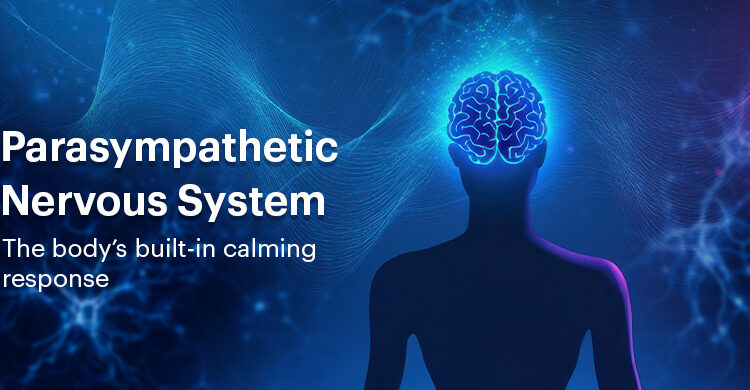Many people experience stress on a daily basis whether it’s related to their jobs, family, health or finances. One’s vulnerability to stress is often influenced by things like their personality, coping skills, social support they receive, and heredity factors. As a result, some people are more likely to feel stressed out than the others.
Burnout is a psychological syndrome that can develop over time as a result of ongoing work stress. Overwhelming fatigue, cynicism, and a sense of inefficacy are red flags of burnout. Burnout and certain workplace pressures are closely related. Inadequate salary, a lack of colleague community, excessive work pressure or lack of independence, unfairness or contempt, and misalignments between professional and personal ideals are a few examples. For the sake of one’s general health, chronic stress from daily life should be reduced as much as feasible. This is due to the fact that persistent stress is bad for your health and raises your risk of developing ailments such as heart disease, anxiety disorders, and depression.
According to research, younger workers who often deal with intense time constraints and excessive workloads on the job are more prone to develop major depressive disorders and generalized anxiety disorder. Companies and organizations may suffer from workplace stress. Burnout lowers workplace productivity, increases absenteeism and job turnover, fosters workplace conflict, and increases stress in the office.

Tips to manage anxiety and work stress
- Practice time management: Trying to do all of your duties at once is not a good stress-reduction strategy because it usually takes you longer to finish them. Make sure you are organized by using your time wisely:
- Make a list of the things you have to do.
- To make a large project less overwhelming, divide it into smaller ones.
- Sort your tasks according to urgency.
- Consider any outside elements that might interfere with finishing chores.
- Consider whether certain tasks require clearance from others, such as a manager, when establishing deadlines because this could cause delays in finishing particular jobs.
- Mindfulness: Being mindful is having the capacity to pay attention to the current moment with openness, acceptance, and curiosity. When we dwell on the past, worry about the future, or engage in self-criticism, stress can be made worse. By practicing mindfulness, you can teach your brain to stop stressful thinking. You can develop your mindfulness abilities through structured practice (like guided meditation) and unstructured activities (like mindful walking), as well as by trying out mindfulness classes or applications.

- Promote Personal Interactions: Electronic communication can make it exceedingly difficult to interpret feelings and intentions. Misreading emails or waiting for a response on a touchy subject are two common causes of worry at work. If a problem is truly giving you worry, never be reluctant to call or meet in person to talk about it.
- Use your annual leave and live a life outside of work: Make sure to take advantage of your annual leave because it will allow you to completely detach from work. You will probably feel more rested and less stressed when you go back. In addition, you need to take care of yourself and partake in enjoyable activities if you want to prevent burnout. This can be anything you want to do, such as taking a bath or going to the movies. People frequently prefer to go straight home and avoid any activities when they are anxious. As a result, they frequently find themselves ruminating over their workday.
- Workout before or after work: Anyone who works in a stressful atmosphere should incorporate exercise into their lives since it has a significant positive impact on anxiety and mental health. Exercise causes the body’s natural analgesics, endorphins, to be released, which elevates mood and lessens discomfort. Additionally, it weakens muscles to lessen symptoms of anxiety, and there is some evidence that it also burns cortisol, the stress hormone. Exercise before work can help you feel less stressed during the workday, and exercise after work can help you feel less stressed when you go home.
- Faking? It’s okay: Finally, faking is a challenging tactic that has the potential to be incredibly successful. Act as though you are not concerned or worried about what occurs at work. In this situation, sometimes referred to as cognitive dissonance, the mind might really adjust to the way you behave. Even if you do not truly feel these positive emotions, if you behave like a fantastic, confident, and happy employee every day, you might start to feel them and thereby lessen your worry.

- Re-evaluating unfavorable ideas: Chronic anxiety and stress can cause people to form a mental filter in which they constantly see the negative in everything. Individuals may mistrust their capacity to handle pressures and draw negative inferences about themselves based on scant or no proof. Reconsider negative views by treating them as hypotheses rather than facts and taking other factors into account. People can lessen the negative emotions they experience in reaction to pressure by regularly exercising this technique.
- Obtain enough rest: You may have trouble sleeping due to stress and worry, which might increase your susceptibility to stress. A restful night’s sleep will improve your focus, assist you in controlling your emotions, and help you deal with stress more successfully. When it is almost time for bed, stay away from stressful and stimulating activities like utilizing your phone or computer. Instead, relax by reading, listening to peaceful music, or doing other quiet activities.
Limit your caffeine intake, especially in the evening.
Establish a schedule based on which you go to bed and wake up at the same time each day.
After 20 minutes, if you are still awake, get out of bed and do something soothing till you fall asleep. Avoid gazing at anything.
- Meditating just for 10 minutes also can be effective: We may find it challenging to fit in any extra activities throughout the workweek, but if you can just set aside 10 minutes for meditation you will see a big difference in your attitude and stress levels.
- Avoid alcohol, caffeine, and nicotine: These substances are stimulants, which might make you feel more anxious. Alcohol is a depressant, therefore it might make you feel down. Also, these substances may make it difficult for you to sleep, which will make you feel worried.
References:
- 7 Strategies to Deal With Work Anxiety Today. Calm clinic. 7 Strategies to Deal With Work Anxiety Today (calmclinic.com). Accessed 1/19/23
- Guide to Overcoming Stress and Anxiety at Work. VIRTUALSPEECH. https://virtualspeech.com/blog/managing-anxiety-stress-workplace. Accessed 1/19/23
- Work Anxiety: 10 Tips to Manage Anxiety at Work. PSYCOM. https://www.psycom.net/10-ways-manage-anxiety-work. Accessed 1/19/23
- How to handle stress at work. HARVARD MEDICAL SCHOOL. https://www.health.harvard.edu/blog/how-to-handle-stress-at-work-2019041716436. Accessed 1/19/23

MDForLives is a global healthcare intelligence platform where real-world perspectives are transformed into validated insights. We bring together diverse healthcare experiences to discover, share, and shape the future of healthcare through data-backed understanding.






